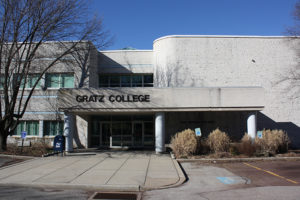Indiana’s State Board of Education recently voted to require students to demonstrate “employability skills” with service projects or receive college ready scores on entrance exams to graduate from high school.

Indiana’s State Board of Education recently voted to require students to demonstrate “employability skills” with service projects, or receive college ready scores on entrance exams to graduate from high school.
The decision came despite objections from the state’s teachers union, which deemed the changes unnecessary, but also raised important questions about the primary purpose of education, especially the formation of strong moral character.
According to the Associated Press:
The new requirements passed on a 7-4 vote after hours of testimony from those who overwhelmingly opposed the changes, including educators and labor unions.
Beginning in 2023, students will have to complete additional coursework, demonstrate employability skills through service or work projects, or show they’re ready for college by receiving high scores on exams that include the SAT and ACT.
Teresa Meredith, president of the Indiana State Teachers Association, complained that the state school board ignored parents, teachers, counselors, and school officials who opposed the move, which some believe will add to the burden of already overworked educators.
Goshen High School Principal Barry Younghans believes that setting the bar higher for students by requiring college ready scores will result in an overall decline in graduation rates. Others, meanwhile, support the idea of the “employability skills” graduation pathway for students who want to become skilled workers.
“Middle school needs to plant the seed that there are honorable and well-paid jobs that do not require a college degree,” said Benteler Automotive’s Mark Melnick, according to the Fort Wayne Journal Gazette.
And while the debate between opponents and proponents of the change has centered mostly on testing and career development, it actually involves a fundamental question about the primary purpose of education, the formation of moral character.
In his book The Tragedy of Moral Education in America, sociologist James Davison Hunter points to the importance of character.
“We believe that character is central to that project [of American democracy], a shared character. And, crucially, almost everyone recognizes that the formation of our children’s character can only be accomplished with the help of our public institutions, particularly our schools. Parents can only do so much on their own,” wrote Hunter, founder of the Institute for Advanced Studies in Culture.
Some schools are following the character-centered approach, ingraining lessons of character into all subjects and elevating formation above all other goals.
Dan Scoggin, founder of Great Hearts Academies, explained why the school’s education model does not view the role of schools as merely an element of workforce development:
At Great Hearts we view our intentional purpose as a restoration of a way of forming the habits and the tastes of the young that was once the hallmark of producing free citizens of a republic.
By focusing their efforts on forming people rather than workers, Great Hearts serves as a model by graduating the kind of well-educated young people who are also highly desirable to employers.



